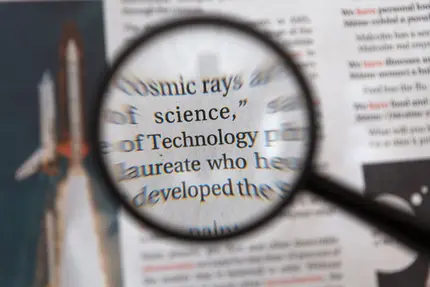T4K3.news
Study Reveals Organized Scientific Fraud
A new report indicates a rising trend of organized fraud in scientific research, compromising integrity.

A systematic fraud scheme is undermining trust in scientific research.
Massive Fraud Ring Threatens Scientific Integrity
A new study reveals that organized fraud in scientific publishing is growing rapidly. Luís Amaral from Northwestern University highlights a disturbing trend where large networks of editors and authors collaborate to produce fake research. These fraudulent efforts have expanded to an industrial scale, outpacing legitimate scientific work significantly. An assessment of over five million papers has uncovered that paper mills are proliferating, generating low-quality studies to sell to authors looking to boost their credentials. The findings suggest that some editors are complicit, enabling fraud rather than policing it. The consequences of these actions are far-reaching, as misleading studies can derail important developments, such as in Alzheimer’s research and COVID-19 treatment.
Key Takeaways
"These networks are essentially criminal organizations."
Luis Amaral emphasizes the seriousness of organized scientific fraud.
"You either buy into scientific fraud, or you leave science."
Reece Richardson points to the stark reality faced by many researchers today.
"It’s incredible what just one paper can do."
Anna Abalkina reflects on the real consequences of fraudulent studies.
"This isn’t about attacking science. We are defending it from bad actors."
Amaral advocates for reform in the scientific community to protect integrity.
The implications of this organized fraud are alarmingly vast. While scientific misconduct has always existed, the modern scale outstrips corrective measures. Amaral’s research indicates a system failure, where incentives for quantity overshadow accountability. As fraudulent studies invade reputable journals, trust in scientific research diminishes. The rise of generative AI adds another layer of risk, as tainted literature could affect future outputs and diagnostic tools. With systemic reform urgently needed, the integrity of scientific inquiry hangs in the balance.
Highlights
- Scientific integrity is at risk and we must defend it.
- Fraudulent studies mislead and waste resources in research.
- The problem of fake science may be larger than we think.
- To believe in science is to fight against fraud.
Widespread Scientific Fraud Poses Risks to Research Funding
The alarming growth of organized fraud in scientific publishing raises concerns about the integrity of research and funding decisions. With fraudulent studies misleading researchers and investors, the long-term implications could jeopardize public trust in scientific findings and their applications.
Without substantial reforms, scientific integrity may continue to erode, damaging public trust.
Enjoyed this? Let your friends know!
Related News

Study reveals alarming rise in scientific fraud

Science journal retracts reported arsenic-eating bacteria study

Innovative Uses of Cadavers Explored

Ancient Fossilized Sperm Discovered

Ex-vegan influencers promote organ meat supplements

Research reveals benefits of gaze-based meditation

Revealing unethical medical experiments

Scented candles linked to indoor air pollution
